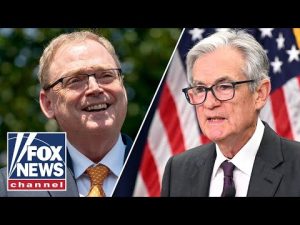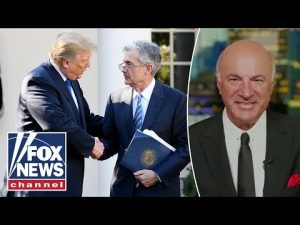In today’s coverage of international trade negotiations and agreements, the focus is firmly on President Trump’s strategies for maintaining United States’ economic dominance. It seems that President Trump has scored what many are describing as a significant win with the European Union, leading to a 15% tariff deal that has left some European countries grumbling. The latest agreement showcases a classic Trump maneuver—strong on persuasion and unapologetically bold—proving once again that when it comes to trade, this administration is all about putting America first.
These achievements, however, are not without their detractors. Some voices within the EU are expressing dissatisfaction, claiming that they buckled under pressure from the U.S. administration. One might wonder if their grumblings stem from the shock of being out-negotiated or simple envy after witnessing the masterclass in deal-making. Ultimately, they handed the authority to negotiate to the EU, and now they must live with the consequences of their decisions. The trade balance needed significant recalibration, and the U.S. was more than happy to lead the way in restructuring terms.
As President Trump’s attention shifts from the EU towards China—an adversary in more ways than one—hopes are high for an equally impressive outcome. The groundwork has been laid with a series of positive negotiations, with key economic advisors suggesting that the President is confident about the direction these talks are heading. The bromance between President Trump and President Xi Jinping (as peculiar as it may be) has fostered an environment ripe for forging agreements that could be transformative for U.S.-China relations.
However, no negotiation with China is without its complications. The situation is further muddled by concerns over national security, most prominently with the contentious decision to allow the Chinese military to purchase Nvidia’s microchips. Critics argue that this move risks equipping our geopolitical competitors with cutting-edge technology. Yet, a point is made that blocking such sales might push China to innovate independently, potentially surpassing us in such technologies. This is a classic case of weighing the lesser of two dangers, and the decision seems to have been made that sharing today can stave off bigger risks tomorrow.
In a humorous twist, the interview veered into a speculative avenue, wondering if the Federal Reserve might surprise everyone with a sudden rate cut. But let’s be honest, a surprise from the Fed these days would be like finding a Democrat who praises Trump—it’s unlikely. The administration remains hopeful yet respectful of the independence of this institution, even as the economic circus continues. The act of negotiation is a dizzying spectacle, but so far, it seems this administration is keeping the balls in the air with style.







